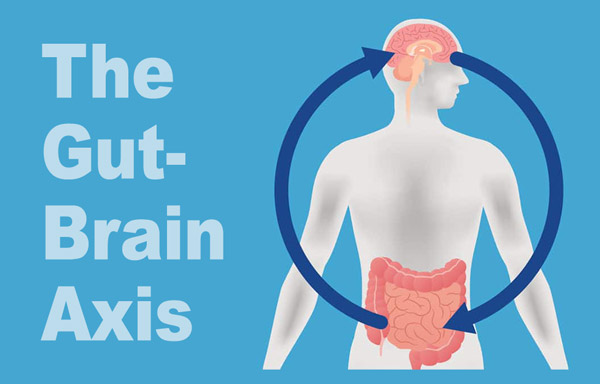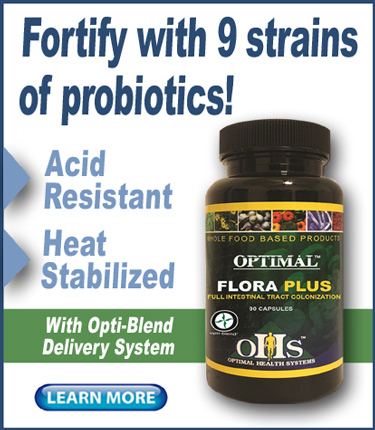If you’re trying to incorporate healthier foods into your diet but find you’re still continually craving junk food, the challenge you’re facing is not really in training your brain—it’s overcoming the signals emanating from your gut!
More precisely, the real challenge is training the trillions of bacteria residing there, and getting them to send the right signals.
In case you’ve missed the ground-breaking research on gut bacteria, you should know that gut bacteria play a larger role in your life than you realize. They are linked to your brain in what scientists dub “the gut/brain axis.”
This axis—or “link”—is what signals your brain in a myriad of ways, especially with regards to what you eat.
Feed your gut beneficial, not destructive, foods
If you continue to feed the bacteria in your gut with junk food, you will be supporting the growth of less-desirable microorganisms that thrive on junk food.
Soon these bacteria will multiply and keep on asking your brain for more of these same low-nutrient foods. This is how junk food cravings are created.
The only way to put a stop to the cravings is by doing the opposite: eat healthy and include foods with a probiotic content.
Consuming a diet rich in fruits and vegetables will starve out junk food-loving microorganisms, causing a decline in their numbers and reducing those cravings. The microorganisms that like healthy food will multiply in their place, fostering a healthier microbiome.
It doesn’t take much to foster a population of friendly bacteria in your gut.
Start by getting plenty of fiber—both soluble and insoluble. Insoluble fiber is usually found in the roughage of “real” foods. This includes fruits, vegetables, legumes and whole grains.
As implied by its name, insoluble fiber is not digested. When eaten, it acts as a “cleansing” mechanism, and transports toxins as it travels through your intestine and exits your body.
Soluble fiber, on the other hand, absorbs water and helps in stabilizing digestion.
Apart from all these, fiber can act as a prebiotic, a substance that the human digestive system cannot process, but is eaten by bacteria in the gut instead.
Learn to love fermented foods!
Every culture around the world has a long history of consuming fermented foods. From kimchi in Korea to sauerkraut in Europe, fermented foods was the practical way to store foods long-term before the age of refrigeration.
And, even though the people didn’t know it, the fermented foods they were eating fortified their bodies with the crucial beneficial bacteria the gut requires. Ironically, this is the essential nutrient that is so lacking in today’s modern diet.
Fermented items like sauerkraut, kombucha, kefir, and yogurt help maintain a healthy balance of bacteria in your gut. The fermentation process occurs because of the action of microorganisms, so these items do contain microbes that are good for your digestive system.
(Note: Depending on a single fermented food source is not recommended, especially if that source is yogurt. Most yogurt available in western markets is not real, and provides little, if any, live probiotics.)
You can also obtain beneficial gut bacteria from quality supplements. Supplementing probiotics (beneficial bacteria) provides many benefits:
Optimize digestion – The proper break-down of food, and assimilation of nutrients, requires digestive enzymes AND gut bacteria. The more fortified the gut, the better your digestion is.
They boost your immune system – Your large intestine is contact with fecal matter on a daily basis, which means it needs to have a strong barrier in place that keeps it safe from infection and harmful toxins. Gut bacteria fortifies your intestine’s natural barrier, increasing its protection from damage and disease.
They help boost your mental health – Remember the gut/brain axis? It also has an impact on your mental health, it turns out. A healthy stomach will allow you better control over your moods and may even help you fight anxiety, depression, and sleeping disorders.
They give you an energy boost – By improving and keeping your digestive system healthy, friendly gut bacteria help facilitate the efficient delivery of nutrients to your body. This means getting more energy from your food and being more resistant to fatigue.
They’re good for your heart – Your body produces bile acids that are used to help in digesting the fat you consume. Unwanted bacteria attacks these acids, impairing your body’s ability to process fat effectively and putting you at greater risk of cardiovascular disease.
High populations of good bacteria help keep the human microbiome in balance. This keeps the bad bacteria at bay, keeps bile acids intact, and restores the body’s ability to process unwanted fat and cholesterol.
When choosing a probiotic supplement be sure to select a product that contains multiple strains of stabilized bacteria. You can find this with Optimal FloraPlus from Optimal Health Systems.
– – –
Sources: FastFood.news, Wikipedia, Lifezette.com.


